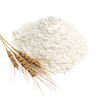Sign In Chef

By using our free meal planner (and the rest of spoonacular.com) you have to agree that you and only you are responsible for anything that happens to you because of something you have read on this site or have bought/cooked/eaten because of this site. After all, the only person who controls what you put in your mouth is you, right?
Spoonacular is a recipe search engine that sources recipes from across the web. We do our best to find recipes suitable for many diets — whether vegetarian, vegan, gluten free, dairy free, etc. — but we cannot guarantee that a recipe's ingredients are safe for your diet. Always read ingredient lists from the original source (follow the link from the "Instructions" field) in case an ingredient has been incorrectly extracted from the original source or has been labeled incorrectly in any way. Moreover, it is important that you always read the labels on every product you buy to see if the product could cause an allergic reaction or if it conflicts with your personal or religious beliefs. If you are still not sure after reading the label, contact the manufacturer.
We also attempt to estimate the cost and calculate the nutritional information for the recipes found on our site. Again, we cannot guarantee the accuracy of this information. Additionally, our nutrition visualizer that suggests that you limit sodium, sugar, etc., and get enough protein, vitamins, and minerals is not intended as medical advice. Similarly, our health tips are based on articles we have read from various sources across the web, and are not based on any medical training. The team behind spoonacular does not possess any medical qualifications and the information may be found to be incorrect or out of date based on future research. If you need help planning your diet or determining which foods (and recipes) are safe for you, contact a registered dietitian, allergist, or another medical professional.
Spoonacular is not responsible for any adverse effects or damages that occur because of your use of the website or any information it provides (e.g. after cooking/consuming a recipe on spoonacular.com or on any of the sites we link to, after reading information from articles or shared via social media, etc.)
×$0.34 per serving

3 likes

Ready in 45 minutes

Spoonacular Score: 40%
Need a lacto ovo vegetarian side dish? Classic Hush Puppies could be a great recipe to try. One serving contains 230 calories, 6g of protein, and 6g of fat. This recipe serves 8. For 34 cents per serving, this recipe covers 8% of your daily requirements of vitamins and minerals. 3 people were impressed by this recipe. If you have cornmeal, milk, flour, and a few other ingredients on hand, you can make it. This recipe is typical of Southern cuisine. It is brought to you by Foodista. From preparation to the plate, this recipe takes roughly 45 minutes. With a spoonacular score of 42%, this dish is solid. Similar recipes are Hush Puppies, Hush Puppies, and Hush Puppies.
Hush Puppies can be paired with Riesling, Sparkling Wine, and Zinfandel. In general, there are a few rules that will help you pair wine with southern food. Food-friendly riesling or sparkling white wine will work with many fried foods, while zinfandel is great with barbecued fare. The Selbach Oster Riesling Kabinett with a 4.3 out of 5 star rating seems like a good match. It costs about 14 dollars per bottle.
 A crackly, starched and impeccable Kabinett; very limey-herbal; especially appley and minerally; stern minty finish. Goes with anything you like in the poultry, shellfish and seafood cuisine, especially if accompanied by cream- or butter based sauces. Great with summer salads and with Pacific Rim Cuisine.
A crackly, starched and impeccable Kabinett; very limey-herbal; especially appley and minerally; stern minty finish. Goes with anything you like in the poultry, shellfish and seafood cuisine, especially if accompanied by cream- or butter based sauces. Great with summer salads and with Pacific Rim Cuisine.
» Get this wine on Wine.com


































Read the detailed instructions on Foodista.com – The Cooking Encyclopedia Everyone Can Edit